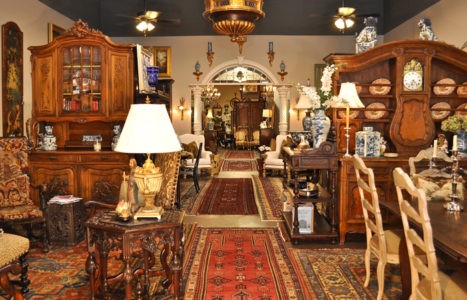By Ben Kerrigan-
An Antiques dealer supplied gangsters with guns and ammunition used in more than 100 shootings, including murders in the UK, a jury has heard.
66 year old Paul Edmunds is accused of using his “encyclopaedic knowledge” of weapons to make tens of thousands of rounds of ammunition at his Gloucestershire home. He is believed to have made in excess of £375,000 from selling guns and ammunitions.
Birmingham crown court was told the ammunition was sold on to associates in the criminal underworld and was found at the scenes of dozens of shooting incidents. Edmunds is accused of circumventing firearms legislation in order to illegally import hundreds of weapons from the United States.
The grandpa is also accused of conspiracy to supply firearms and ammunition, fraudulent evasion of a prohibition or restriction, perverting the course of justice and possession of a prohibited firearm.
A jury of seven men and five women was told that Edmunds manufactured the ammunition at three armouries at his home.
Paul Edmunds was subjected to an investigation after the National Ballistics Intelligence Service (Nabis) noticed an increasing number of pre-war handguns at crime scenes. The investigation led to members of an organised crime gang involved in supplying the firearms with the specially made ammunition to be caught and convicted. Tool markings on ammunition seized matched those they had recovered over several years, and the police launched Operation Gold Dust.
Opening the case, the prosecutor Andrew Fisher QC said: “This case concerns the supply of guns and live ammunition to criminal gangs both in the West Midlands and across the country. In March 2014 the police mounted an operation in an attempt to apprehend both those who supplied the guns and those who possessed them.
Advertisement
The firearms experts at Nabis had noticed since 2009 that an increasing number of police recoveries were of pre-war handguns for which there was no commercially available ammunition, prosecutor Andrew Fisher QC stated. Examinations showed that much of this ammunition had been manufactured using the same equipment.
“Microscopic examinations enabled them to see telltale tool markings on the ammunition, rather like fingerprints. Therefore, it appeared that the same person or manufacturer was supplying the specially made or adapted ammunition that was recovered from over 100 crime scenes throughout the country.
“As you can imagine, there was an extensive search for not just the people who had these firearms, but the person supplying them and the ammunition.”
The court heard that the weapons were passed to a gang leader, Nosakhere Stephenson, by a man called Mohinder Surdhar through the gang’s chief armourer, Sundish Nazran.
Surdhar obtained the guns from several sources that included Mr Edmunds, and the specially made or adapted ammunition from Edmunds. These weapons were then used in several fatal shootings, and the shooting at a police helicopter during the London riots of 2011.”
CONFRONTATION
Edmunds was confronted by the police after an invoice of his was found among Surdhar’s papers. His premises were subsequently searched by police. The prosecutor said: “His business was run from home. The principal armoury was his garage, and this was already known to and regularly inspected by the authorities. But police searches found a further armoury in his bedroom where he undertook some of the modifications, and a third one in the attic.
“It was found that the specially made or adapted ammunition recovered by the police in the 100-plus recoveries from crime scenes matched ammunition found at Edmunds’ house. There were many tens of thousands of rounds of ammunition and component parts.”
The prosecutor told the court: “Plainly he has an expertise and almost encyclopaedic knowledge of firearms and ammunition. He has been supplying guns and ammunition highly unlawfully for many years.”
Further searches of Edmunds’ home found he had imported hundreds of guns from the US. Fisher said Edmunds then failed to list them on his firearms register, meaning they could not be traced.
“He managed to get around this regulation, including costs and taxes, in order to make it cheaper for him but, more relevantly, easier to supply to the illicit market,” the prosecutor said.
The court heard that Edmunds may have made up to £375,000 as a result of selling on the guns and ammunition.




